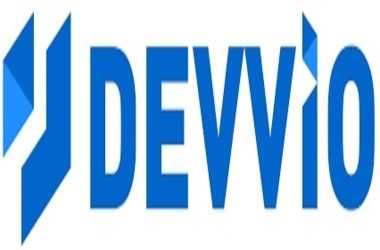
The extensive research, referred to as a life cycle assessment (LCA), involves a structured review of DevvX’s environmental implications during its life cycle, with early findings suggesting that the DevvX blockchain network uses very little power than existing systems. As per third-party data, in terms of energy consumer per transaction, the blockchain platform consumes around 347 million times less energy than Ethereum and 3.5 billion times lower energy than Bitcoin.
Devvio is a pioneer in large-scale corporate offerings for ESG, NFTs, remittances, supply chain logistics, IoT, workplace safety, identification, and asset/records administration. Devvio’s futuristic platform, which leverages the world’s foremost and the only ISO-conforming green blockchain, delivers more than 8 million transactions per second while staying adaptable, low-cost, regulatory complying, private, safe, auditable, and internationally scalable network backed by a RESTful API interface that simplifies connectivity.
The following are preliminary comparing findings for a specific blockchain trade:
DevvX: 2.1 Joules
Ethereum: 693 million Joules
Bitcoin: 7 billion Joules
The full report is expected to be made available in the final week of January, and it will be the foremost occasion that a blockchain technology has been subjected to a rigorous, independent review of its carbon impact by a third-party organization using globally accepted ISO principles and guidelines.
“It was critical to us as a business to establish the viability of our blockchain platform via a rigorous, peer-reviewed system performed in accordance with ISO standards,” stated Tom Anderson, CEO of Devvio. “With this study, we intend to establish a fresh environmental standard for the crypto sector overall.”
DevvX’s blockchain technology has been used in a wide range of corporate apps, encompassing ESG, NFTs, identification, supply chain logistics, and remittances. DevvX is the quickest and also most scalable blockchain in operation, more than 8 million transactions per second, and features immutability, anonymity, Byzantine Fault Tolerance, proprietary theft and loss safeguards, and a RESTful API interface for simple integration into current systems.
DevvX blockchain shards, which are presently housed on the AWS cloud, are intended to accommodate any quantity of validator nodes; for the sake of this research, 7 nodes per shard were presumed to guarantee a comparative evaluation. The vast number of trades in a real-world application built on DevvX would be processed locally between these 7 nodes, since wallets are only hosted on a specific shard at a moment, rendering broad consensus unneeded.
If a larger consensus is necessary for a specific use case, DevvX’s energy consumption should increase roughly proportionally with the inclusion of new nodes. For instance, if 1,196 nodes were included—an unreasonably large count of nodes for any real-world use case—the energy used for a single trade on the DevvX platform would be about 360 Joules. Because each DevvX shard is functionally autonomous, the cost of installing extra nodes is low.
Since AWS EC2 instance energy and power usage characteristics are not publicly available, the Benjamin Davy paper Estimating AWS EC2 Instances Power Consumption2 was utilized to provide reliable estimations. Every test received around 200,000 trades from the tested shard, with a little delay imposed between every proposed trade to closely imitate real-world trade volumes.
